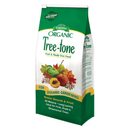Tea Olives take to pruning and shearing very well, to either promote good color or maintain a manageable size. Pruning should be done while dormant, in either late winter or VERY early spring before new growth appears. If you prefer a more open and natural form, simply remove up to one third of the branches down to the ground each year or two. By thinning rather than shearing you will have an 4 foot tall and wide, elegant fountain of gorgeous variegated foliage. Or shear as needed to maintain size, or every 4-6 weeks to produce new colorful growth. Eventually your Tea Olive will develop thick central branches that become trunk-like, particularly if you are not pruning hard every year. Growth will be dense to the ground, or you can remove branches up a length of each trunk, resulting in a multi-stemmed dense form. Maintenance pruning is generally necessary as twigs develop up the length of the bared trunks. If there are too many main trunks, a few may be pruned out completely depending on the form you desire. Pruning has been described as a “combination of art and science.” I find pruning to be one of the most relaxing yet rewarding chores in the garden. Pruning a specific plant to look a specific way, involves art in creating a unique definition for a specific plant, and it involves science in understanding the physical growing habits of the plant to be pruned. The most important reason for pruning Tea Olives is to improve the overall health of the plant which in turn will reward you with a brilliant display of tri colored foliage. Many times, Tea Olives that have not been pruned in a few years will develop dead or degenerative twigs. Removing the dead and dying limbs will minimize the possibility of diseases such as “die-back” and will also allow the plant to re-concentrate its energies and produce flowers. Another reason for pruning Tea Olives such as many times, a plant may outgrow its intended size in the landscape, and must be pruned to re-define its purpose. Pruning should always be associated with re-invigorating a plant by allowing it to focus its energies on producing more vigorous branches, foliage, and flowers. Specific plant objectives require specific pruning techniques. If a Tea Olive is being trained as a hedge , it would need to be pruned differently than if it were being grown as a shrub form. Screenings and hedges of gardenias would need to be pruned for their specific purpose within the landscape. It is also important to understand the specific growing characteristic of a certain plants when pruning that particular plant. It is important to always use sharp tools when pruning Tea Olives or any plant for that matter. Knives, hand cutters, saws, and shears should be sharpened if necessary before pruning any plant. A sharp cut will heal quicker than a jagged cut, which will also minimize the likelihood of disease investing a cut during pruning. It is generally recommended by me to not use power equipment such as gas hedgers to prune plants. Pruning large Tea Olives may be minor or major. Its general purpose is to maintain or restore vigor to the plant. Large Tri-colored dappled willow that have been severely pruned have the advantage of a large root system that has excessive capacity, and its roots are capable of supplying all of its energies to a smaller number of branches and foliage. This enables the plant to increase its vigor, and become healthier. Pruning large Osmanthus that are well established will enable the plant to have continued vigor, and lead to many more years of supplying beauty to the landscape.

![Fragrant Tea Olive Hardiness Zones 8-11]()












